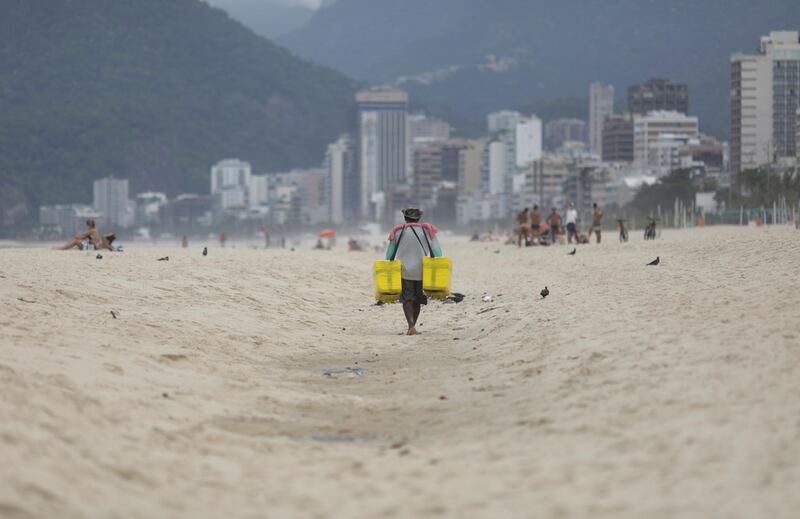British officials announced a framework for awarding A-level results for 2020 on Friday in a move that opens the way for UAE students to take up university places after the cancellation of the annual exams in the country.
Education officials said teachers would assess pupils using mock exam grades and examination board officials would then review and certify performance in an effort to ensure university places are filled.
The announcement raised concerns for UAE students who, according to the latest advice, will still have to sit the exams but face new risks of being unfairly assessed when applying for university places.
On Friday, the government issued new guidance advising that exam boards will be asking teachers to submit judgments about the grades they think their students would have received if exams had gone ahead.
Teachers will have to take into account “a range of evidence and data”, such as mock exam results and other school work.
This will be combined with information from “other relevant data”, such as pupils’ previous attainment, to calculate their grades.
The move comes after the UK education secretary Gavin Williamson announced all GCSE and A-level exams would be cancelled due to the coronavirus outbreak.
He said: "I can only imagine how distressing the cancellation of exams has been for students, parents and teachers. My priority now is to ensure no young person faces a barrier when it comes to moving onto the next stage of their lives."
I can only imagine how distressing the cancellation of exams has been for students, parents and teachers. My priority now is to ensure no young person faces a barrier when it comes to moving onto the next stage of their lives.https://t.co/KiIslZMfHu
— Gavin Williamson (@GavinWilliamson) March 20, 2020
However, international students will still have to sit exams.
Education minister for UK universities Michelle Donelan sought to give reassurance that universities would be "flexible".
She tweeted: "We have announced more details about summer exams in light of the coronavirus. I want to reassure students that universities will be flexible and do all they can to support and ensure progress to higher education"
We have announced more details about summer exams in light of the coronavirus. I want to reassure students that universities will be flexible and do all they can to support and ensure progress to higher education https://t.co/wzsURln8WI
— Michelle Donelan MP (@michelledonelan) March 20, 2020
Cambridge Assessment, the body that oversees A-levels and international GCSEs, has confirmed the exams will go ahead according to schedule in countries where schools are open.
It said: "Cambridge International exams – including Cambridge IGCSE, Cambridge O Level, Cambridge International AS & A Level, Cambridge AICE Diploma – are separate from the exams mentioned by the UK government.
"Cambridge International exams will go ahead outside the UK in countries where schools are open or exams can be held safely.
"For schools in England that take Cambridge International exams, we are working with the UK government to understand more about their intentions. We will provide more information to schools as soon as possible."
There have also been concerns that the new measures will hit pupils from ethnic minorities.
At GCSE I was predicted a D in History and then got the highest grade in my year, and joined the few students in the country with 100% in all papers. Predictions are usually wrong (either inflated or under-predicted) & biases play a heavy role, esp towards BAME + WC kids.
— M 🇵🇸 (@rosaluxemburgs) March 19, 2020
Prof Kalwant Bhopal, director of the centre for research in race and education at Birmingham University, told The Guardian: "There's a lot of evidence to show that there are stereotypes around particular types of students, so their predicted grades are lower, and when they do the exam they do better than their predicted grade.
“Students who are from white, middle-class, affluent backgrounds will do very well from these predicted grades, especially those from private schools. Their parents would just go to the school and argue the case that ‘My child isn’t a B, they’re an A*’, and the teachers will take that on board. Those students will do better.”
The government is expected to announce an appeals process for those who feel they have not been fairly assessed.


















